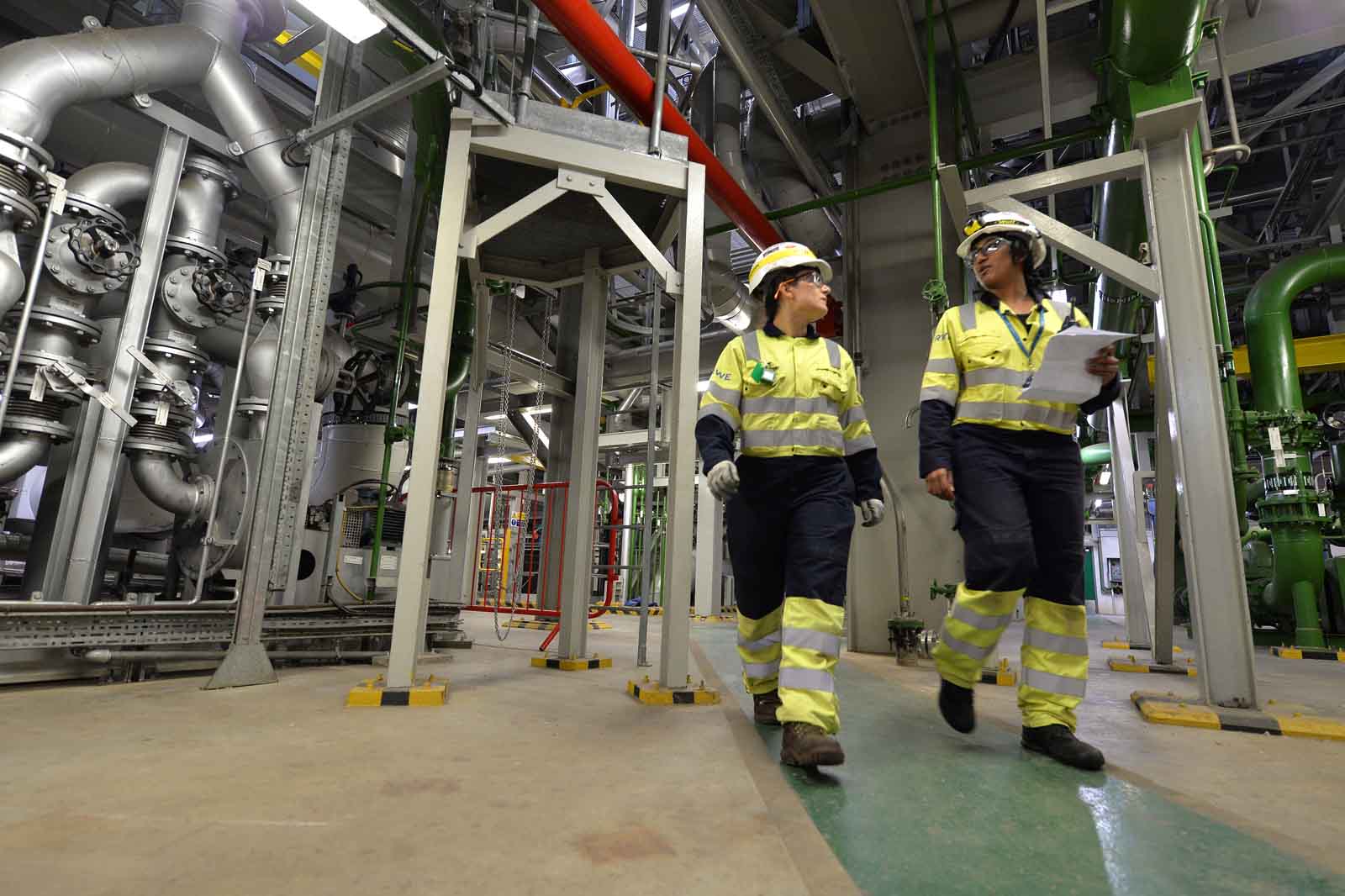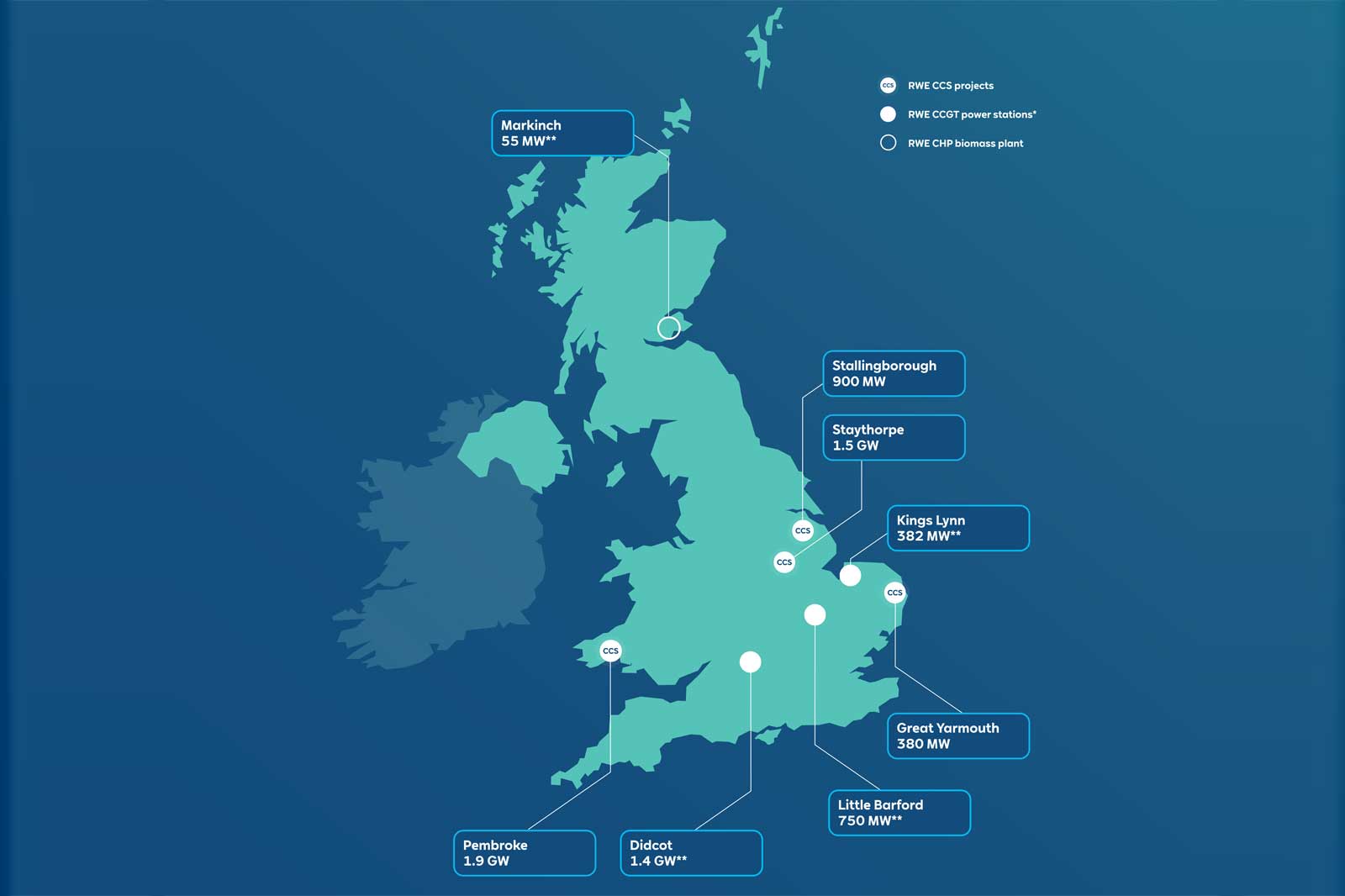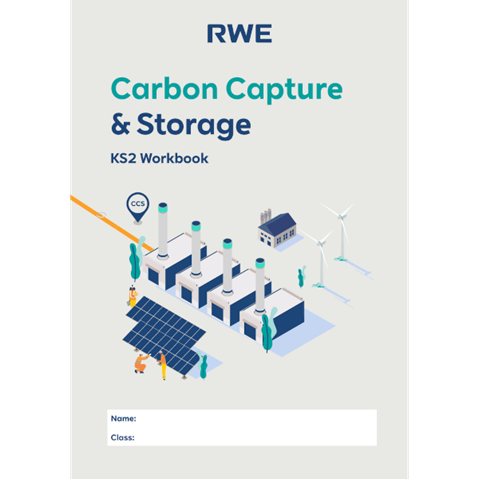Staythorpe is a gas-fired combined cycle gas turbine power station that began commercial operation towards the end of 2010. We are now investigating options to apply carbon capture technology to Staythorpe power station to provide reliable, decarbonised electricity to the grid. We are working with Harbour Energy to explore options for transporting and storing the captured carbon through its Viking CCS network. This will allow a high percentage of the carbon that is emitted by the power station to be captured and stored safely to offset any emissions.
RWE has a clear objective: to be carbon-neutral by 2040. Decarbonisation and sustainability are therefore key components of RWE’s corporate strategy.
RWE currently operates approximately 7 GW of conventional, efficient gas-fired capacity in the UK. We believe this firm and flexible power remains an essential part of our country’s energy mix, now and in the future. We are considering carbon capture projects to provide a decarbonised future for a number of our existing gas-fired power stations, and a new-build carbon-capture enabled power station.








